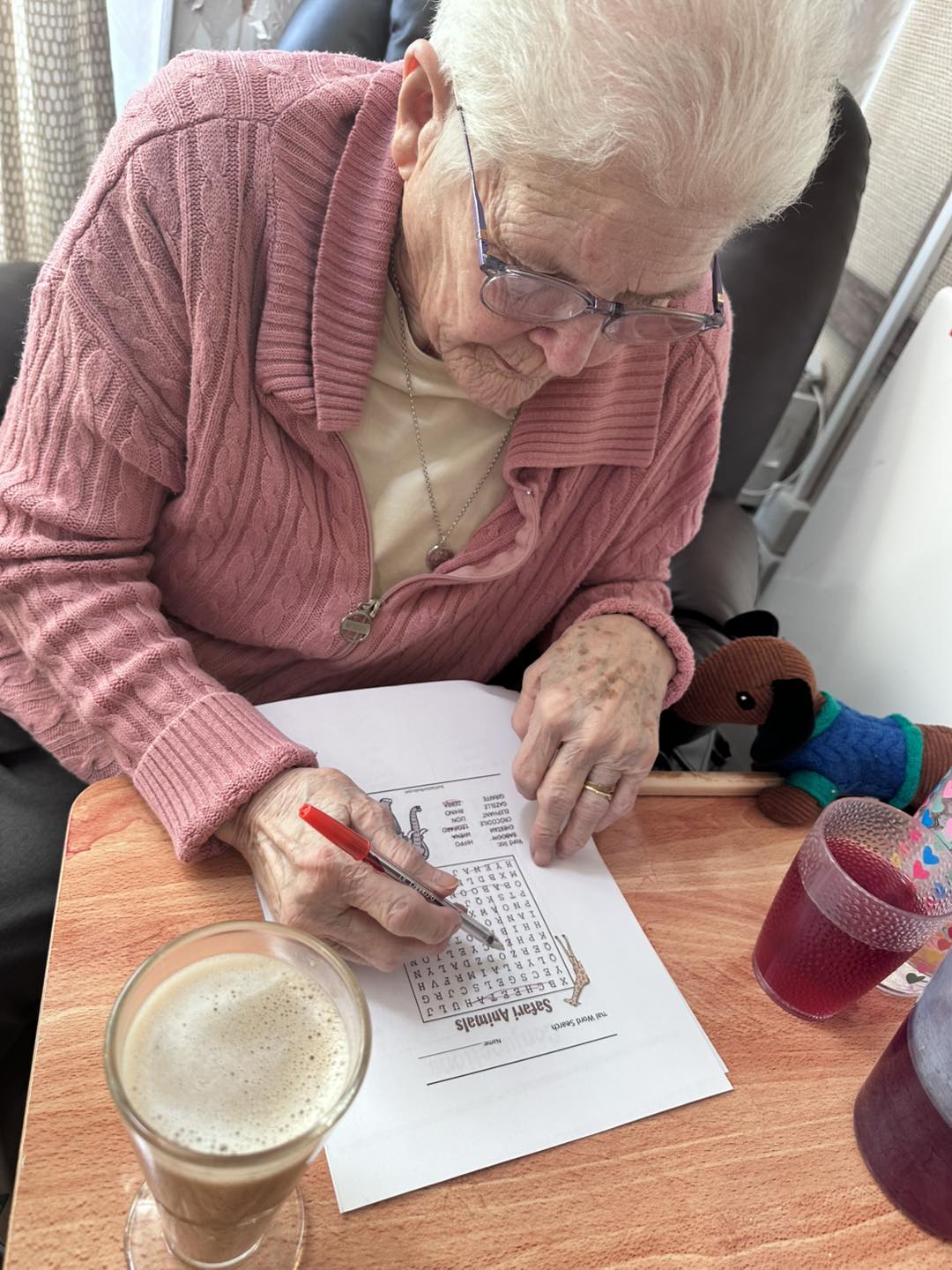Are you looking for ways to keep your mind sharp and engaged?
Cognitive stimulation is essential for maintaining mental agility and preventing cognitive decline.
In this article, we will explore various activities that can help you keep your mind active and engaged.
One effective way to stimulate your brain is through puzzles and brain teasers.
These activities challenge your problem-solving skills, memory, and logical thinking.
Whether it’s a crossword puzzle, Sudoku, or a jigsaw puzzle, these games require focus and concentration, to keep your mind sharp.
Additionally, memory games and exercises can also be beneficial in improving cognitive function.
By engaging in activities like memorizing lists or playing memory card games, you can enhance your ability to recall information quickly and accurately.
So why not give these activities a try?
Your brain will thank you!
Puzzles and Brain Teasers
You’ll find that solving puzzles and brain teasers not only keeps your mind sharp but also unlocks the hidden potential within you.
Engaging in these activities requires you to think critically, analyze information, and come up with creative solutions.
As you work through challenging puzzles, you’ll notice an improvement in your problem-solving skills and reasoning abilities. Your brain will become more agile and adaptable, allowing you to approach problems from different angles.
Furthermore, puzzles and brain teasers provide a sense of accomplishment when you successfully solve them. This feeling of achievement boosts your confidence and motivates you to take on new challenges.
Additionally, the mental stimulation from these activities can enhance your memory and cognitive function overall. So don’t hesitate to give yourself a mental workout by tackling puzzles and brain teasers – they’re an enjoyable way to keep your mind engaged.
Moving onto memory games and exercises…
Memory Games and Exercises
Forgetful much? Try out these memory games and exercises to give your brain a little jog.
Memory games are a great way to improve your brain’s ability to recall information and strengthen its cognitive abilities. You can try playing classic card matching games, where you have to remember the position of cards and match them up.
Another fun memory game is Simon, where you have to repeat a sequence of colours or sounds in the correct order.
Sudoku puzzles are also excellent for enhancing your memory as they require you to remember numbers and their positions on the grid.
Another effective exercise for boosting your memory is visualization. Close your eyes and imagine a familiar place, like your childhood home or a favourite vacation spot. Try to visualize every detail, from the colour of the walls to the furniture placement. This practice helps improve your visual memory skills by challenging you to recall specific details from your imagination.
Now that you’ve given these memory games and exercises a try, let’s move on to learning new skills and hobbies. By engaging in activities that are unfamiliar to you, such as painting or playing an instrument, you can stimulate different areas of your brain and keep it active.
Learning New Skills and Hobbies
Engaging in new skills and hobbies can invigorate our minds and foster continuous growth. When we learn something new, whether it’s playing a musical instrument or painting landscapes, our brain is challenged to adapt and develop new neural connections. This cognitive stimulation not only keeps our minds active but also enhances our overall cognitive abilities.
Learning new skills and hobbies can also provide a sense of accomplishment and satisfaction, boosting our self-esteem and confidence. Additionally, exploring different interests and passions can open doors to new opportunities, expand our social networks, and allow us to connect with like-minded individuals who share similar interests.
By immersing ourselves in learning new skills or pursuing hobbies that interest us, we can enhance our cognitive abilities while enjoying the process. As we engage in activities that require focus and concentration, such as learning a language or practising yoga, we are actively challenging our brains to process information efficiently. These activities stimulate various areas of the brain responsible for memory retention, problem-solving, and creativity.
Furthermore, when we invest time in developing these skills or hobbies consistently over time, we create a positive habit of lifelong learning that promotes continuous mental growth.
Transition into the subsequent section about ‘engaging in meaningful conversations’: As you explore new skills and hobbies that intrigue you, it becomes easier to engage in meaningful conversations with others who share your passion or have similar experiences.
Engaging in Meaningful Conversations
By actively participating in deep and meaningful conversations, you can broaden your perspectives and gain valuable insights from others who share similar interests or experiences. Engaging in these types of conversations allows you to explore different viewpoints, challenge your own beliefs, and expand your knowledge on various topics. It stimulates critical thinking and encourages you to consider alternative ideas or solutions.
Additionally, meaningful conversations provide an opportunity for personal growth by fostering empathy, understanding, and connection with others.
Moving on to the next section about participating in problem-solving activities, it’s important to note that these activities can further enhance cognitive stimulation.
Participating in Problem-Solving Activities
Let’s dive into problem-solving activities, which can be a fun way to challenge our minds and discover creative solutions.
Engaging in problem-solving activities stimulates our cognitive abilities by requiring us to think critically, analyze information, and come up with innovative solutions. These activities can range from puzzles and brain teasers to group problem-solving exercises.
When we participate in problem-solving activities, we are actively engaging our brains and keeping them sharp. These activities help improve our cognitive skills such as logical thinking, reasoning, and decision-making. They also enhance our ability to think creatively and outside the box.
Problem-solving activities provide us with opportunities to use different strategies, experiment with various approaches, and learn from trial and error. They encourage us to think flexibly and adapt our thinking based on new information or changing circumstances. By challenging ourselves with these activities regularly, we can improve not only our problem-solving skills but also our overall cognitive function.
Participating in problem-solving activities is an effective way to keep our minds active and engaged. It allows us to exercise critical thinking skills while having fun at the same time. So why not give it a try? Challenge yourself with some brain teasers or gather a group of friends for a team-based problem-solving activity. Your mind will thank you for the mental workout!
Frequently Asked Questions
How do puzzles and brain teasers help stimulate cognitive function?
Puzzles and brain teasers boost cognitive function by challenging your mind with intricate problems. They stimulate critical thinking, problem-solving skills, memory retrieval, and creative thinking, enhancing your overall mental agility.
What are some memory games and exercises that can be done to improve memory?
To improve memory, try playing memory games like matching cards or word association. You can also do exercises such as recalling lists of items or practising mindfulness to enhance your ability to remember information.
What are some new skills and hobbies that can be learned to keep the mind engaged?
Learn a new language, play an instrument, try painting or photography. Engaging in these activities can keep your mind active and engaged, allowing you to learn new skills and develop new hobbies.
How do meaningful conversations contribute to cognitive stimulation?
Meaningful conversations contribute to cognitive stimulation by sparking curiosity and challenging your thinking. They provide opportunities to explore new ideas, perspectives, and knowledge, keeping your mind engaged and active.
What are some problem-solving activities that can be participated in to enhance cognitive function?
To enhance your cognitive function, try problem-solving activities like puzzles, riddles, or brain teasers. These challenges require critical thinking and logic, keeping your mind sharp and engaged.
Conclusion
In conclusion, cognitive stimulation isn’t just important for keeping your mind active and engaged, but it can also have a positive impact on your overall well-being.
By regularly engaging in activities such as puzzles and brain teasers, memory games, learning new skills and hobbies, participating in problem-solving activities, and having meaningful conversations, you’re exercising your brain and helping to maintain its optimal function.
These activities provide mental challenges that can enhance your cognitive abilities, improve memory retention, and sharpen problem-solving skills. They also offer opportunities for personal growth and self-discovery by allowing you to explore new interests and expand your knowledge base.
Additionally, engaging in meaningful conversations fosters social connections and emotional well-being.
So why not make cognitive stimulation a regular part of your routine? Challenge yourself with a crossword puzzle or sudoku game each morning over a cup of coffee. Take up a new hobby or skill that interests you. Engage in thought-provoking discussions with friends or family members. The possibilities are endless!
By actively stimulating your mind on a regular basis, you can keep it sharp, agile, and ready to take on any mental task that comes your way. So go ahead – what are you waiting for? Start engaging your mind today!




